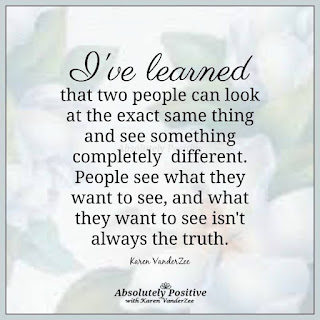Feel Like Rescuing Someone? Try Rescuing Yourself
Ever try to find happiness with a very special person—who has a victim mentality? If you have, then I can safely predict that you are still trying desperately to find that happiness, because you will never find it with someone who is stuck in the groove of playing the victim.
Victim mentalities feed on people with caretaker/people-pleaser mentalities. People with victim mentalities chew-up and spit out their caretakers like they’re tobacco. Why? Because perpetual victims have no intentions of being anything but lifetime victims of life—forever and ever. You can’t rescue them. They don’t want to be rescued. They just want someone who’s going to listen to and baby them over their now ancient sob stories or their latest episode of self-created chaos. And they’ll run you through the ringer of their martyrdom until you can no longer stand it, or until they can no longer stand your attempts to rescue them into a healthy state of happiness.
I feel sorry for people who think that they are going to fix and thus rescue the victim they’ve actively adopted. Rescuers (codependents) think they have a mission in life to save people from themselves. They also wrongly believe that they will be able to fix a special someone and that the two of them will then live happily ever after. To justify this behavior, they tell themselves how wonderful and caring this person is underneath their eternal turmoil. They see the other person as sadly pitiful like a limping puppy that can’t take care of itself. And they are so sure that if they take good care of this person, he/she will love them back forever just like a grateful puppy. But it never works out that way. People are not puppies.
If all of your focus is on rescuing someone else, you have a serious problem. When your attention is constantly centered on another person, you are staring at a huge red flag-- one that you are obviously not seeing. This is denial. And denial is like a grain of sand that can hide the largest of mountains.
You may be telling yourself that any day now your special person will snap out of it. You may be believing that one more prayer, or one more word, or one more action from you is going to magically transform this person from victim to stable happy citizen. And even worse, you may be fantasizing about how much this person is going to love and treasure you for saving them from themselves. Wake up! Look past the grain of sand (denial) and SEE the mountain (reality).
The truth is this: That magic day is never going to come. The person you have been trying desperately to rescue is never going to be the person you want them to become. So stop wasting your energy, time and talents on a hopeless case. Place your attention—all of it—back on yourself. You obviously need to be helping yourself, not others. Rescue yourself. Get your life in healthy mental/emotional order. It will help you to see the red flags when people are toxic for you and it will help you to build healthy—and eventually happy—relationships with people who have also done their homework; who have rescued themselves and are ready for some healthy living.




Several years ago, I read "The Compassionate Samurai." It includes a section on victimization, and I really appreciate where the author, West Point grad Brian Klemmer is coming from. It brings to mind "The Stockdale Paradox" from Jim Collins' book "Good to Great." In his book, Collins refers to the "hardiness factor" and writes:
ReplyDelete"Throughout our research we were continually reminded of the "hardiness" research studies done by the International Committee for the Study of Victimization. These studies looked at people who had suffered serious adversity -- cancer patients, prisoners of war, accident victims, and so forth -- and survived. They found that people fell generally into three categories:
1. Those who were permanently dispirited by the event,
2. Those who got their lives back to normal, and
3. Those who used the experience as a defining event that made them stronger ... people who used the event as an opportunity to create something much stronger and more powerful ..."
I think it is important for everyone to look back and re-evaluate her own life relative to Klemmer's five "benefits" of being a victim.
1. It exempts you from having to take action.
2. People feel sorry for you and have pity parties for you -- and that makes you feel good, wanted, accepted, and loved.
3. You never have to make tough decisions.
4. You don't feel obligated to do anything great in life because "the thing" that happened is responsible for the way you are.
5. for the rest of your life, you can comfortably believe that your failures are directly connected to what someone else did to you, and you can blame them.
I know people, too many people just like this who enjoy the benefits of being "a victim." Don’t be a victim.